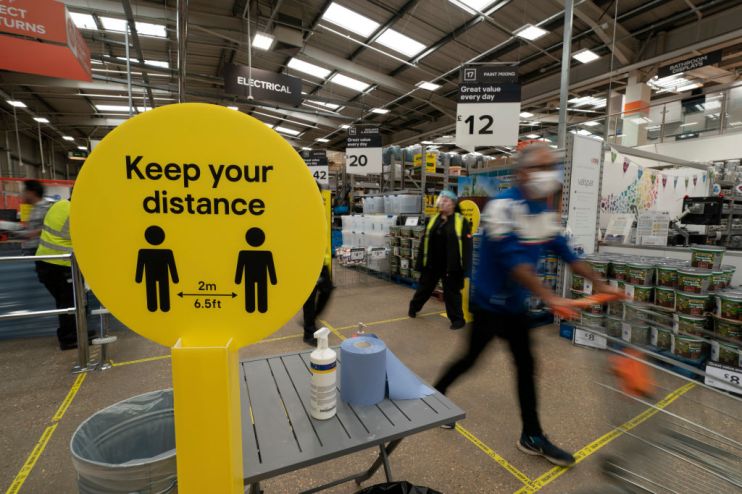UK inflation beats expectations but stays well below Bank target

UK inflation increased for the first time this year in June as non-essential shops reopened from coronavirus lockdown, official figures have shown, although it was still well below the Bank of England’s target.
UK inflation as measured by the consumer price index came in at 0.6 per cent in June, the Office for National Statistics (ONS) said, up from 0.5 per cent in May.
Analysts had expected it to drop to 0.4 per cent but rising computer game prices helped push it higher. Nonetheless, it remains far below the Bank’s target of two per cent.
In June, the UK government allowed non-essential retailers to reopen after months of coronavirus lockdown. Restaurants, pubs, cafes and hotels remained closed, however.
The slight pick-up in inflation will cheer policymakers as a sign of economic activity in June. It comes the day after disappointing GDP figures for May which showed the economy grew just 1.8 per cent after April’s crash of 20.3 per cent.
However, Samuel Tombs, chief UK economist at Pantheon Macroeconomics, warned it “is not the start of a sustained upward trend”.
Computer games drive up UK inflation
“The increase was driven by a jump in the inflation rate for the volatile ‘games, toys and hobbies’ component,” he said. “This component tends to be influenced by the timing of major computer game releases, it will mean-revert soon.”
ONS deputy national statistician Jonathan Athow said clothes prices were also an important factor.
“Due to the impact of the coronavirus, clothing prices have not followed the usual seasonal pattern this year, with the normal falls due to the start of the summer sales failing to materialise,” he said.
“Prices for computer games and consoles have risen, but food prices, particularly vegetables, have fallen.”
The ONS said it was more expensive clothes and games that had the biggest upward impact on inflation in June.
Falling food prices were the biggest drag on inflation. Lower prices in restaurants and hotels – which remained closed throughout June – also added downward pressure.
Core inflation – which strips out volatile energy, food, alcohol and tobacco prices – rose to 1.4 per cent from 1.2 per cent in May. Analysts had expected it to stay put at 1.2 per cent.